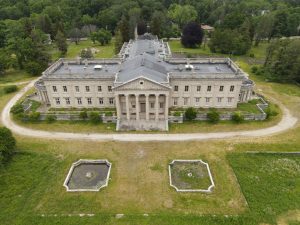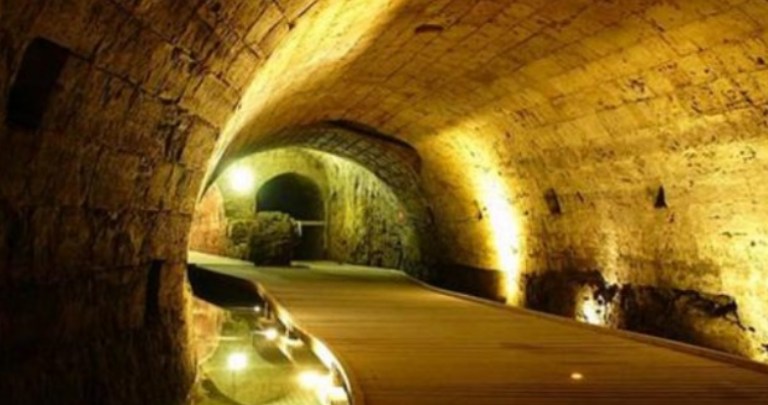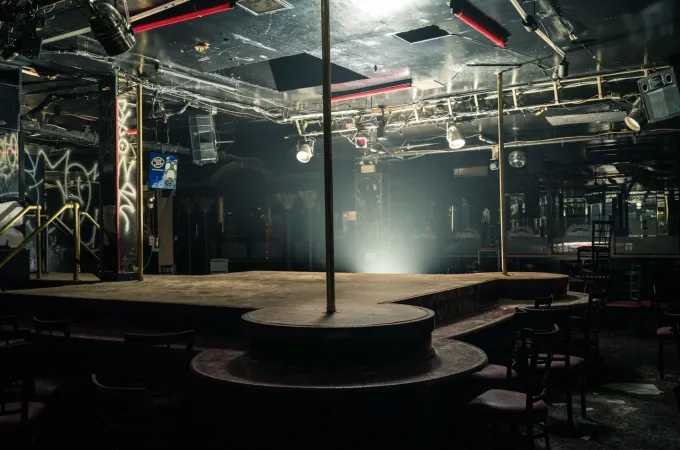Abandoned 100-Room Mansion in Pennsylvania: A Glimpse Into Opulence and Decay
Abandoned 100-Room Mansion in Pennsylvania: A Glimpse Into Opulence and Decay
The concept of an abandoned 100-room mansion in Pennsylvania is almost too grand to believe. Yet, it exists—a colossal, once-immaculate estate that now stands in eerie silence, filled with the echoes of its storied past. While it may be difficult to imagine, these kinds of grand properties, often built in the early 20th century by wealthy industrialists or powerful families, are not as rare as one might think. However, the scale and mystery behind this particular mansion make it an especially intriguing subject.
The Mansion’s Origins
Location: Nestled in Pennsylvania, this mansion is part of the long history of affluent families and industrialists who built massive estates during the Gilded Age and early 20th century. The mansion’s secluded location—likely surrounded by acres of forest, sprawling lawns, or private gardens—adds to the mysterious and almost mythical reputation of such grand estates.
Construction: Built by a wealthy family or a prominent industrialist, the estate likely symbolizes the height of luxury and power in its heyday. The mansion would have been a product of its time, with exquisite craftsmanship, rich materials like marble, fine woodwork, intricate tilework, and an array of luxurious rooms.
Architectural Grandeur: The sheer scale of a 100-room mansion suggests a sprawling estate with multiple wings, ballrooms, libraries, dining halls, and guest quarters. From the grandeur of its entryways to the intricacies of its private rooms, the architecture would have been designed to impress both visitors and anyone who had the privilege of living there.
Why It Was Abandoned
While the sheer size and luxury of the mansion might suggest it was built to last, many such estates fell victim to a range of factors:
Financial Decline: Often, wealthy families who built these estates went through economic downturns or poor financial management, leading to the property being abandoned or sold.

Family Tragedy or Loss: As with the mansion you previously mentioned, personal tragedies—like deaths in the family, scandals, or broken homes—might have driven the owners to leave.
Upkeep Costs: A 100-room mansion would require an enormous amount of maintenance. After years of declining interest in maintaining such an estate, it could have become too costly to keep up with.
Shift in Lifestyles: The opulence of these large estates began to fall out of favor as society moved towards more modern, efficient, and practical living. Wealthy individuals began moving towards urban areas and smaller, more manageable homes.
The Mansion Today
Today, the abandoned mansion might appear as a haunting shell of its former self. While the building may still stand with its high ceilings, grand staircases, and ornate architectural details, it’s likely to be filled with decay.
Decaying Interiors: The once-polished wood paneling, intricate molding, and grand fireplaces might be chipped or disintegrating, with pieces of furniture, chandeliers, and décor still left behind, offering glimpses into the past.
Overgrown Grounds: The sprawling grounds, including gardens and pathways, may be overgrown with weeds, vines, and even small trees, reclaiming the land once controlled by humans.
Rooms of Mystery: Each of the mansion’s 100 rooms likely tells a story—whether it be a private bedroom, an opulent ballroom, a library filled with rare books, or a long-forgotten servant’s quarters. Over time, things like old documents, photos, or even antique furniture may still remain, waiting to be discovered.
The Haunting: Many abandoned estates are said to carry an air of mystery, and there is often speculation about whether or not such properties are haunted. Given the mansion’s age and history, there could be stories of strange occurrences or ghostly figures that have been passed down over the years, though whether they are based on fact or folklore is up for debate.
Exploring the Mansion
For the brave, an exploration of this mansion would be like stepping back into a forgotten world. But before heading into such a location, there are some key things to keep in mind:
Structural Integrity: With years of neglect, parts of the mansion might be unstable or dangerous. There could be rotting floors, falling ceilings, and potential for other hazards. Caution would be essential.
Legal Issues: Many abandoned properties are still privately owned. Trespassing on private property can have legal consequences, and it’s always best to ensure permission has been granted before attempting to explore.
Preserving History: While exploring, it’s essential to preserve the integrity of the space. Taking photos, documenting the state of the mansion, and not disturbing the contents (or leaving behind trash) can help keep the story of the mansion intact for future generations to appreciate.
The Fascination of Forgotten Mansions
Stories like these are always compelling. They capture the imagination because they hold a mix of both beauty and tragedy. At one point, this mansion was likely a center of luxury and power, hosting grand parties, filled with music, laughter, and light. Now, it stands as a relic of a forgotten age, a physical reminder of the passage of time and the fleeting nature of wealth and status.
Exploring an abandoned 100-room mansion in Pennsylvania is not just about seeing a large structure. It’s about uncovering the stories and memories of the people who lived there—perhaps tracing the rise and fall of a family, the transformation of society, or even imagining what life was like when it was in its prime.
It could also be a larger metaphor for the persistence of decay and the forces of nature reclaiming what humans once built. Whatever the reasons for its abandonment, the mansion has become a powerful symbol of both grandeur and loss.
Related Posts
-
 A secret knights templar tunnel that remained hidden for 700 Years
No Comments | Oct 10, 2024
A secret knights templar tunnel that remained hidden for 700 Years
No Comments | Oct 10, 2024 -
 DECADES OF DESIRE: THE RISE AND FALL TORONTO’S ABANDONED CADDY’S STRIP CLUB
No Comments | Mar 6, 2024
DECADES OF DESIRE: THE RISE AND FALL TORONTO’S ABANDONED CADDY’S STRIP CLUB
No Comments | Mar 6, 2024 -
 Old Westbury Gardens located at 71 Old Westbury Road was converted into a museum home in 1959
No Comments | Feb 4, 2024
Old Westbury Gardens located at 71 Old Westbury Road was converted into a museum home in 1959
No Comments | Feb 4, 2024 -
 Astronomical Clock in Prague, Czech Republic
No Comments | Oct 10, 2024
Astronomical Clock in Prague, Czech Republic
No Comments | Oct 10, 2024